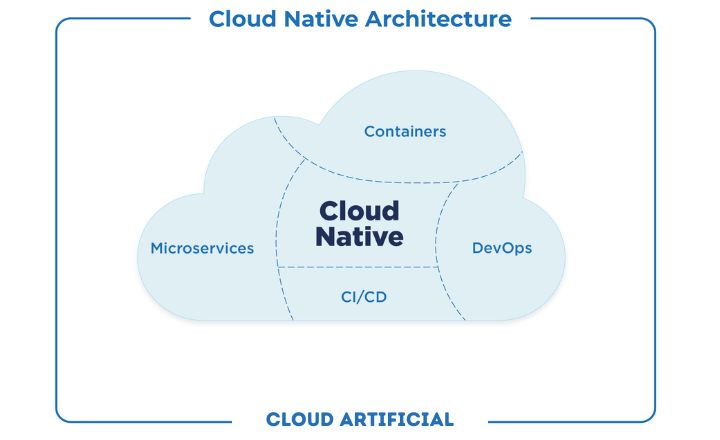Organizations can access all the information they need to move fast across computing systems, providing consumers with virtual platforms with all the flexibility needed to manage workload. This enables storage capability, faster data analysis, and a flexible cloud computing management structure.
Cloud computing is now a cost-effective method for organizations to store and process enterprises’ data. It increases productivity, the decision-making process, and higher collaboration, and it is changing management systems.
Join us on a journey to explore how cloud computing is changing management and what is cloud computing services changing to empower leaders to navigate an increasingly complex business environment with agility and efficiency.
Shift to cloud-native organizations
Cloud-native refers to the approach of designing software specifically for running and scaling on cloud-based infrastructure while maintaining reliability.
Its applications aim to reduce the consequences of alterations to specific components in the software as their primary objective. Cloud-native is an important step in creating a timely feedback cycle because it helps companies deploy software.

Traditional software had a lot of dependencies, with multiple lines of code and coders required even for small changes. Articles on cloud computing can be deployed and managed globally in a single location without hassle.
How cloud computing is impacting management?
The use of cloud computing is becoming widespread, and it impacts businesses in the way they do it. Cloud technology solutions revolutionize the operational efficiency of businesses and their management strategies by facilitating rapid storage of vast amounts of data.
It increases business efficiency and performance, and employees can work from anywhere globally which ultimately increases remote jobs, and changes cloud computing and management.
How cloud computing is changing management?
Data-driven decisions
Cloud enables organizations to make the fastest and most reliable decisions. With the cloud and technological solutions, managers have all the integrated and accurate data they need at their fingertips.
Changing customer experience
The cloud solution allows businesses to develop cloud-based products or services. Businesses create their products and services as software-centric entities by which data can be driven regularly, which helps meet customer expectations.

The cloud allows for enhancing operational flexibility and scalability. Business can transform their customer relationship method quickly to meet the expectations of customers these create a better experience for customers.
Organizing and planning
Cloud-based enterprise resource planning software allows them to standardize their process and operations, and data can be stored flawlessly under one holistic system.
Leadership
Cloud technology solution changes the landscape of businesses along with changing certain roles in a leadership position within the organization, chief information officer (CIO) or chief technical officer (CTO) most impacted position.

A position that has the ability to create an impact across the entire business. A rapid pace of information on cloud technology services has driven this evolution of the technology leader.
Productivity and efficiency
Cloud-based applications help businesses link various resources, ranging from SaaS choices to on-site software that employees can handle, enabling them to access necessary data from any location.
Cloud computing articles allow focusing more on the productivity of the applications needed to be successful for organizations. Adding more resources will be simple and cost-effective. Businesses can store and manage data on cloud resource allocations, or other cloud-based features.
Conclusion
Cloud computing is revolutionizing the way businesses manage their operations by providing increased flexibility, scalability, and efficiency. The ability to access data and applications from anywhere at any time has transformed traditional management practices.
The cost-effectiveness of cloud services makes it an attractive option for businesses of all sizes. The increasing prevalence of cloud computing technologies highlights the necessity of adopting digital transformation to remain competitive in today’s dynamic business landscape.
